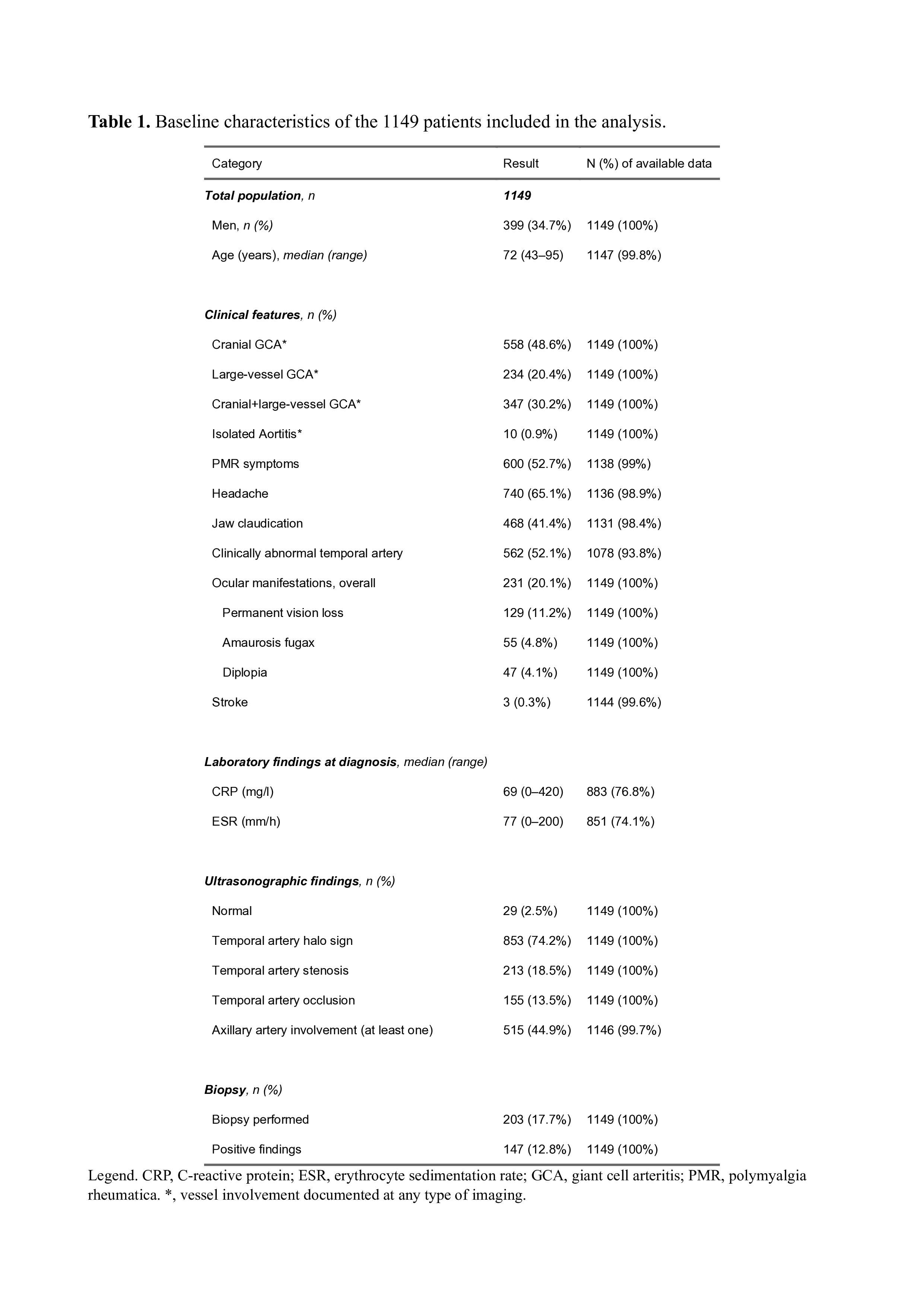Session Information
Date: Sunday, October 26, 2025
Title: (0731–0764) Vasculitis – Non-ANCA-Associated & Related Disorders Poster I
Session Type: Poster Session A
Session Time: 10:30AM-12:30PM
Background/Purpose: Whether the disease onset in giant cell arteritis (GCA) exhibits a seasonal pattern remains unclear. Previous studies have yielded conflicting evidence: some report no seasonality, while others suggest seasonal variation, though findings are inconsistent and difficult to compare, especially due to methodological limitations, including small cohort sizes and reliance on diagnosis or biopsy dates rather than symptoms onset. We aimed to clarify whether a seasonal pattern exists by analyzing a large cohort using the date of symptom onset as the temporal reference.
Methods: Consecutive patients from a large German monocentric GCA cohort in Berlin-Buch (1994–2024) with a documented date of symptom onset were included. To ensure balanced seasonal representation, patients with symptom onset outside the period of December 1, 1994, to November 30, 2023, were excluded. Meteorological seasons were used for the analysis (spring: Mar–May; summer: Jun–Aug; autumn: Sep–Nov; winter: Dec–Feb). To assess whether symptom onsets were equally distributed across seasons (25% per season), we applied an exact multinomial test using the “ExactMultinom” package in R. Sensitivity analyses were performed for subgroups by sex and clinical phenotype (cranial vs extracranial involvement), with Bonferroni-Holm correction for multiple testing.
Results: Of 1203 patients in the full cohort, 1149 fulfilled the inclusion criteria and were included in the main analysis (population’s characteristics are reported in Table 1). The overall seasonal distribution of symptom onset was: spring 292 (25.4%), summer 276 (24.0%), autumn 271 (23.6%), winter 310 (27.0%) (p = 0.36). Figure 1 illustrates the seasonal distribution of symptom onset stratified by years across the study period. Subgroup analyses revealed no overall significant seasonal variation as shown in Table 2.
Conclusion: This large, single-center cohort study using symptom onset data found no evidence of a significant seasonal pattern in the disease onset of GCA patients.
To cite this abstract in AMA style:
Bond M, Bosch P, Juche A, Bastian H, Schmidt W. Is There a Seasonal Pattern in Giant Cell Arteritis? Revisiting the Evidence in a Large Monocentric Cohort of 1203 patients [abstract]. Arthritis Rheumatol. 2025; 77 (suppl 9). https://acrabstracts.org/abstract/is-there-a-seasonal-pattern-in-giant-cell-arteritis-revisiting-the-evidence-in-a-large-monocentric-cohort-of-1203-patients/. Accessed .« Back to ACR Convergence 2025
ACR Meeting Abstracts - https://acrabstracts.org/abstract/is-there-a-seasonal-pattern-in-giant-cell-arteritis-revisiting-the-evidence-in-a-large-monocentric-cohort-of-1203-patients/


.jpg)
.jpg)